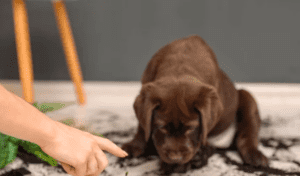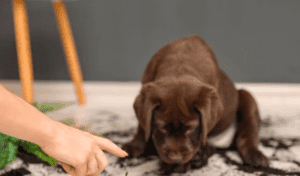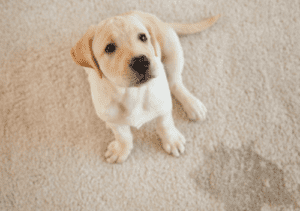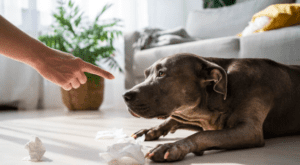
I recall a time my Lab made a puddle in one of the rooms at our house and I scolded him and wagged my finger. He responded by hanging his head. I doubt he was feeling guilty but he sure looked like it! My tone of voice and finger surely made him nervous. But unfortunately, he’d probably already forgotten about the puddle.
Unless I had found him ‘in the act’ it really is unlikely that he/she feels guilty.
***Dogs associate only very immediate consequences with their acts –even something that happened just a minute or two before won’t be connected to their brain with any correction received. This is why trainers recommend you correct undesirable actions only as they take place (and always with distraction and positive reinforcement, not punishment).
That terrible old custom of rubbing a dog’s nose in their mess was not only unkind but pointless!! The pup didn’t understand, other than the owner was angry and that she was afraid. It can even, sometimes, reinforce the behavior. It’s important to make sure that your Lab associates you with positive things.
For dogs, like all species who live with humans, their safety is a priority. So they have evolved a sign language (the eminent Norwegian trainer Turid Rugaas first described these as “calming signals”) to let those around them know that they themselves do not pose a threat.
An extreme example might involve a dog lying on its back exposing its stomach (message: I pose no threat, I am making myself vulnerable to you). In a more everyday context (an annoyed voice or raised finger), your puppy decided to lower its head, averting a direct gaze at you, and to sit down, in an effort to calm you down, which in human eyes looks very much like guilt.
What do you think?


